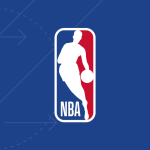It is an interesting moment in European basketball.
The EuroLeague has long been considered the second-best basketball league in the world, after the NBA. But the NBA has recently shown interest in forming a new league on the continent and may launch within the next few years as it continues to examine how and when it should do so.
That has left questions about what it would mean for the EuroLeague and its future, or if the two leagues can work together. The EuroLeague has also taken steps forward to grow. It has expanded to 20 teams, and had, for a time, considered taking an outside investment from a private equity firm. As for its relationship with the NBA, executives from the two leagues and FIBA sat down for a meeting in Geneva in May and have signaled an openness to work together.
In The Athletic’s continuing series of Executive Q&A sessions, EuroLeague CEO Paulius Motiejūnas spoke to The Athletic this week to discuss the league’s future, its relationship with the NBA, his thoughts on the wave of European players leaving for NCAA schools and more.
Note: This interview was edited for length and clarity.
On the relationship with the NBA
It seems like you and the NBA have been building your relationship over the last few months. I know things had not been well for a period of time there, but you had that meeting in Geneva. Where do things stand between the NBA and EuroLeague?
Listen, it was a positive meeting. It was the first time out of many years that everybody was at the same table. And we need to thank FIBA for being in the middle and trying to put everybody on the same page.
What we heard is the same as what is publicly known, that they’re in the exploration mode, and they’re trying to see how and what. We said to them, like we said publicly, we don’t believe that the new league is something that would help the market.
So we left with an open mind, saying that we’re ready to collaborate. And the question is, how and when. We keep growing, and we keep doing our homework and maximizing the game of basketball in Europe. So I believe that only helps all the sides.
And as a next step, I believe we’ll have another meeting, I would say around September or during September to sit down again and hopefully get into a deeper discussion and analyzation of how we can work together.
Because I repeat it and I said it before: we don’t need a new league. We are doing really good. The league is growing. We’re happy to go and do it together with NBA and continuously use their power to grow the basketball in Europe. So we’re open to that.
What would collaboration with the NBA look like?
They have a really strong image. They can help with TV deals. They can help with sponsorship. We can grow the pie bigger if we go and work together. This is always the same message. We need to care about the basketball, the basketball fan, and if we can monetize the game better — and we believe that with the NBA, we can do it better — that’s the strength that we could get them to bring in, and then it comes from that.
But we have a huge fan base. We have 25 years of history. This is what we said to them. Why not sit down and see how we go and make decisions together, rather than just creating a new league and for them to start over? This is basically our message.
And like I said, we are open to making decisions together and pitching together and working together to, firstly, grow the pie, and then, you know, the division part is easy. First you need to kill the animal to see how much meat is on the table to divide.
Would you be open to or have you discussed an NBA investment into EuroLeague?
It has to come from them. We cannot go and say, you know, do it yourself. So I really believe that’s why we stopped our process or put it on hold, to see and keep this option open.
Most people see that if the NBA expands to Europe and starts its league, that will be a bit of a threat to the Euroleague. Do you see it that way? And do you feel like that’s changed now that you guys are on better terms?
I don’t see it as a threat to us, to the league. We can see from the TV deals, we can see from the sponsorship, we can see from the interest of the clubs to play EuroLeague that it’s not a threat and it’s more a confusion. And if you look at the bigger picture, I keep repeating this, we need to care about the game — the game of basketball and the fan of basketball.
This new league would create confusion. It would create division and on simple terms, you go to the sponsor, and you say, ‘I’m now this new, you know, NBA League.’ And then we go, ‘Well, we are EuroLeague.’ And then, oh, there’s this Champions League; oh, there’s this Euro Cup. For the hardcore fans, everybody knows EuroLeague, and everybody knows Europe. And we are not afraid to lose these fans, because we believe we have a better product right away on the court.
But when we want to grow all together to go and sell this product, you would turn on the TV and you have no idea if it’s a top-tier competition, second-tier, or third-tier. That’s what I mean, we can lose the potential to grow the product and get the fans to follow us because we really have the best basketball in the world on the court.
Do you have any concerns about any of your A license clubs going to play in the other league?
I’m really optimistic. There’s a lot of confusion. And like you said, NBA is still exploring. They’re talking about another two, three years. Quoting you, obviously. We are growing. Why would you leave the league which is growing? So we are doing what depends on us. We remain optimistic. We took all the right decisions. The numbers are showing this, and the future will decide. I cannot see the future, but let’s see. We are doing everything that’s in our hands to grow the product and grow the league. And I’m sure the clubs are acknowledging that, and they will stay with us.
On EuroLeague expansion
For next season, the EuroLeague has expanded to 20 teams. I think you’re still trying to figure out the destinations for a few final fours. What would you say is the state of the league right now?
Growing. I think expansion and everything — the (2025) Final Four in Abu Dhabi was a great new step. Now going to 20 teams, but keeping the same calendar, it’s a huge step. So really, we are 25 years young, and it’s only getting started. That’s what we keep saying, because, by numbers, in the arena, outside the arena, sponsorship numbers, you know, everything; so growing is the right term.
What was the reason behind expanding from 18 to 20 teams for this upcoming season?
We see a lot of teams that are ready, we see a lot of potential, and we see that the competition level will be the same or even grow. I think that’s the main reason, when you see that the teams are mature enough to play and to come and join you, this is an inevitable step. That’s why we took two steps. One is to expand, and the other one is to give (multi)-year wild cards for the clubs so that they know that there’s some stability in it.
On relationships in the Middle East
One of the teams that you gave a multi-year wild card to was Dubai Basketball. What is the benefit for your league of having Dubai Basketball in there, and how do you plan to expand the relationship with the Gulf states going forward?
The first step was the final four. And because it was a success, because Dubai was a success in the Adriatic League, we think it’s the right step to open up that market. You know how sports is a priority there. There’s a lot of financial backing, whether it’s golf, whether it’s tennis, whether it’s football, you know and we think the basketball deserves to be there as well. Not only with the friendly games or the Final Four, but they proved that they can deliver. They can travel. And you’re right, it’s not Europe, but it’s also not that far. It’s a gradual growth, but let’s see what the next steps are.
On investment and revenue growth
I know that you have been searching for a while for private equity investment. Where does that stand?
It’s on standby, but it’s still in the books, and one of the reasons it’s on the standby is obviously the chance to go and talk to the NBA and have them come into the mix.
You’ve said that your revenue has grown by about four and a half times over the last 10 years. I know you just renewed media rights deals in a number of the countries in Europe where you have teams. Financially, how big do you think the market can be for the Euroleague?
We need to become a tier one sport in Europe. We are not. We need to compete with Formula One. We need to compete with tennis. I can take the UK, for example. Everybody knows it’s a football sport, and then you have rugby, and then you have everything else. But the number of people playing basketball is amazingly big because it’s a sport that is catching up. I don’t think there’s a cap.
On EuroLeague’s relationship with college basketball
You’ve had a good amount of European players come to the NCAA this past year, with them being able to be paid now. Is that a problem for those teams that develop the talent? How do you deal with that?
I hope it’s a short-term problem. The goal of signing young players is to have them play in EuroLeague and to play for the main team. Before, it was them staying inside (the club) and you being able to grow them. Right now, they take this path to go to the NCAA but with a goal. Everybody goes there believing that they will play in the NBA, but we all understand that it will be a small percentage who make that. So I think eventually they will have to come back to Europe. And that’s why I say it’s a short-term problem.
It’s been, what, two years — now the third year —so maybe one or two more years, and the graduates will have to find a place to play. And I think the loophole will close itself. It’s also bad for the NBA. It’s also bad for the player this young to get millions, to lose the passion to play basketball. I think one is the money that they get. And the second thing that I always point out is that now they can go from one university to another when they open the portal, and you’re no longer forced to finish the university and get the degree, which was always what was good? Because now when you keep going around, I think it’s quite difficult to get there.
So I hope it’s a short-term problem, and we will go back, and European teams will continue to grow players like they do.
Because it seems like it’s hard for the European teams to compete with the colleges because they pay more from what it seems like.
No, now it’s insane. It’s impossible to compete. Now it’s insane. It just doesn’t make any sense.
(Photo: Fadel Senna / AFP via Getty Images)











